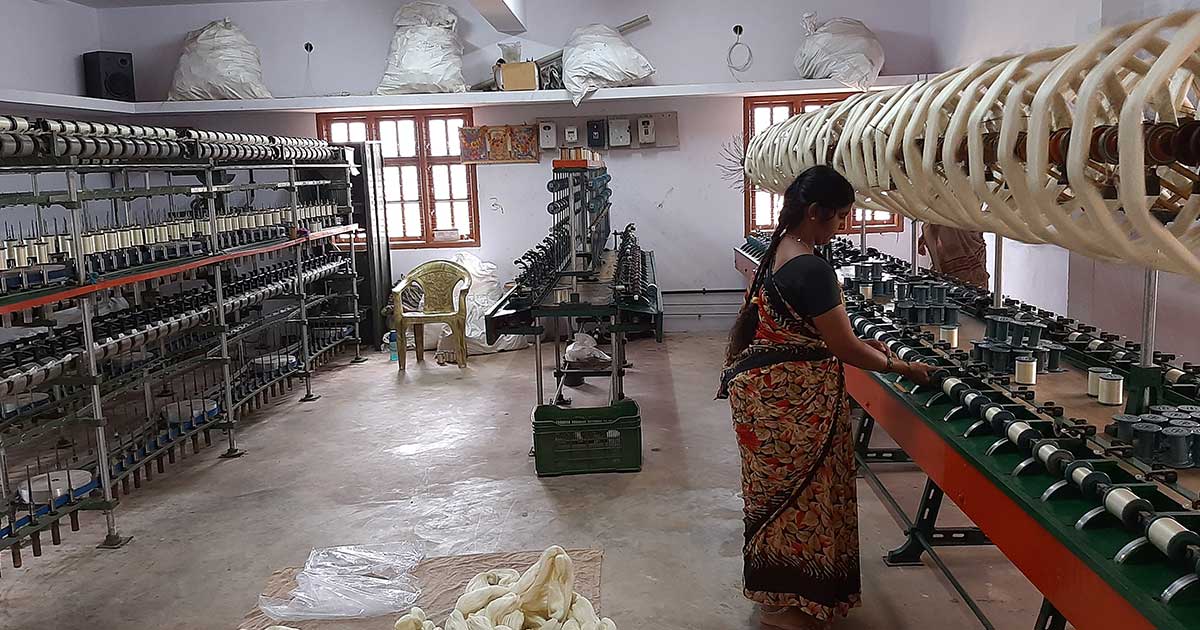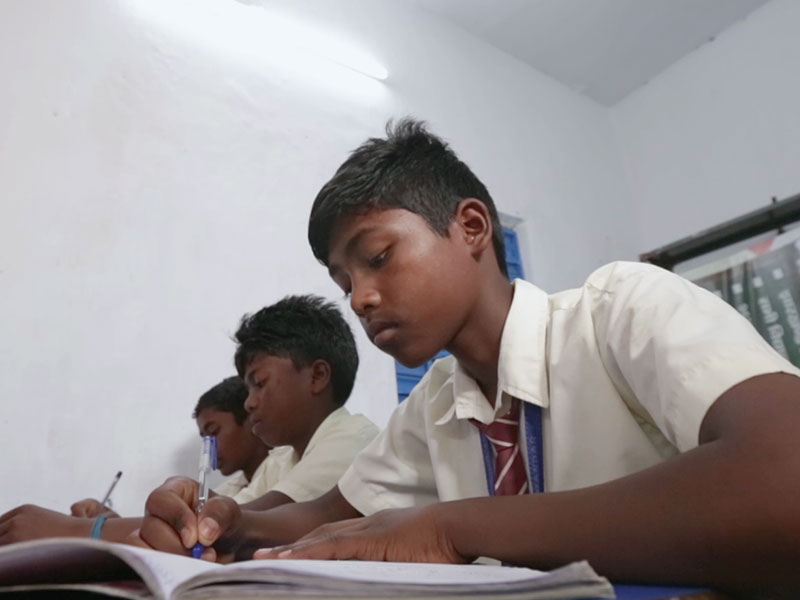Feasibility study for solar applications in MSMEs in India
The project aims to study the opportunities for solar energy based electricity in MSMEs in rural India

A detailed feasibility study was undertaken to understand the current energy use pattern and opportunities for solar energy based electricity use for the micro, small, and medium enterprises. The project aims to not only address the energy related challenges faced by these micro-enterprises but also to augment the use of solar energy and take India towards a cleaner energy economy.
Feasibility and Potential of Solar Applications in Micro, Small and Medium Enterprises in Rural India
Authors: Manish Kumar Pandey, Prashanta Kumar Swain, Rashmi Murali, Jitendra Tiwari, Yabbati Nagaraju
The report is the result of a study to explore the feasibility and potential of solar PV applications in the MSME sector in rural India

The feasibility study is expected to develop possible business models for the uptake of solar PV systems in the micro-enterprise sectors of India. Based on this study, the following key recommendations have been provided here:
Introduction of solar PV scheme for micro-enterprises
The Ministry of MSME (MoMSME) or Ministry of New and Renewable Energy (MNRE), Government of India may come up with a new 'solar PV scheme for MSME sector, particularly for targeting microenterprise sectors in rural areas'. Such schemes will encourage significant solar adoption, which will reduce the cost of production and increase profitability. It will further help in replacement of polluting diesel gen-sets usage in the micro/ home-based enterprises.
Financial assistance under existing MSME schemes
MoMSME, Government of India schemes such as Micro and Small Enterprises Cluster Development Programme (MSE-CDP), Prime Minister Employment Guarantee Programme (PMEGP) and Revamped Schemes of Fund for Regeneration of Traditional Industries (SFURTI) as well as newly introduced 'Atmanirbhar Bharat Abhiyan' may facilitate credit-linked capital subsidy facilities for inclusion of solar PV systems in the microenterprises.
Constitution of technical committee
State-level technical advisory committee may be constituted comprising experts from finance, technology, policy, and procurement to address the impediments that have been limiting the uptake of solar PV in the sector.
Facilitating small loans for microenterprise clusters
Small loans at affordable rate should be facilitated to micro-entrepreneurs for adoption of solar PV systems. It would enable more attractive payback periods and reduce financial burden on microenterprises. Loans could be made available from financing scheme, such as 'MUDRA' by sensitizing all other financing agencies including MFI/RRBs/ SFIs/cooperative, etc. for solar procurement.
Converting state power subsidy to onetime capital subsidy
It is proposed that the state government may allocate the power subsidy to respective DISCOM (in states such as Karnataka) in order to promote grid-interactive solar PV rooftop programme in the micro-enterprise cluster roping in organizations such as EESL and IREDA to facilitate financing.
Awareness generation and demo piloting
Creation of awareness and sensitization among the micro-enterprise clusters have been recommended on existing solar PV schemes and incentives. Further, to ensure the quality of the solar PV system, a list of approved solar integrators should be made available from time to time to these prospective entrepreneurs. The solar integrators or other agencies may be encouraged with incentives for promoting solar PV in the micro-enterprise clusters. As a way forward, demonstration model of solar PV in the identified cluster may be considered to showcase the technical and business prospects of the system to the micro-entrepreneurs, financiers, and policymakers.
Multi-stakeholder collaboration
Multipronged strategies may be needed through multi-stakeholder's collaboration including policymakers, consultants, local administration (e.g., district industry centres) suppliers, bankers, research institutions, and the civil societies for arranging resources for successful piloting and then scaling up of solar PV applications in rural micro-enterprise clusters.

